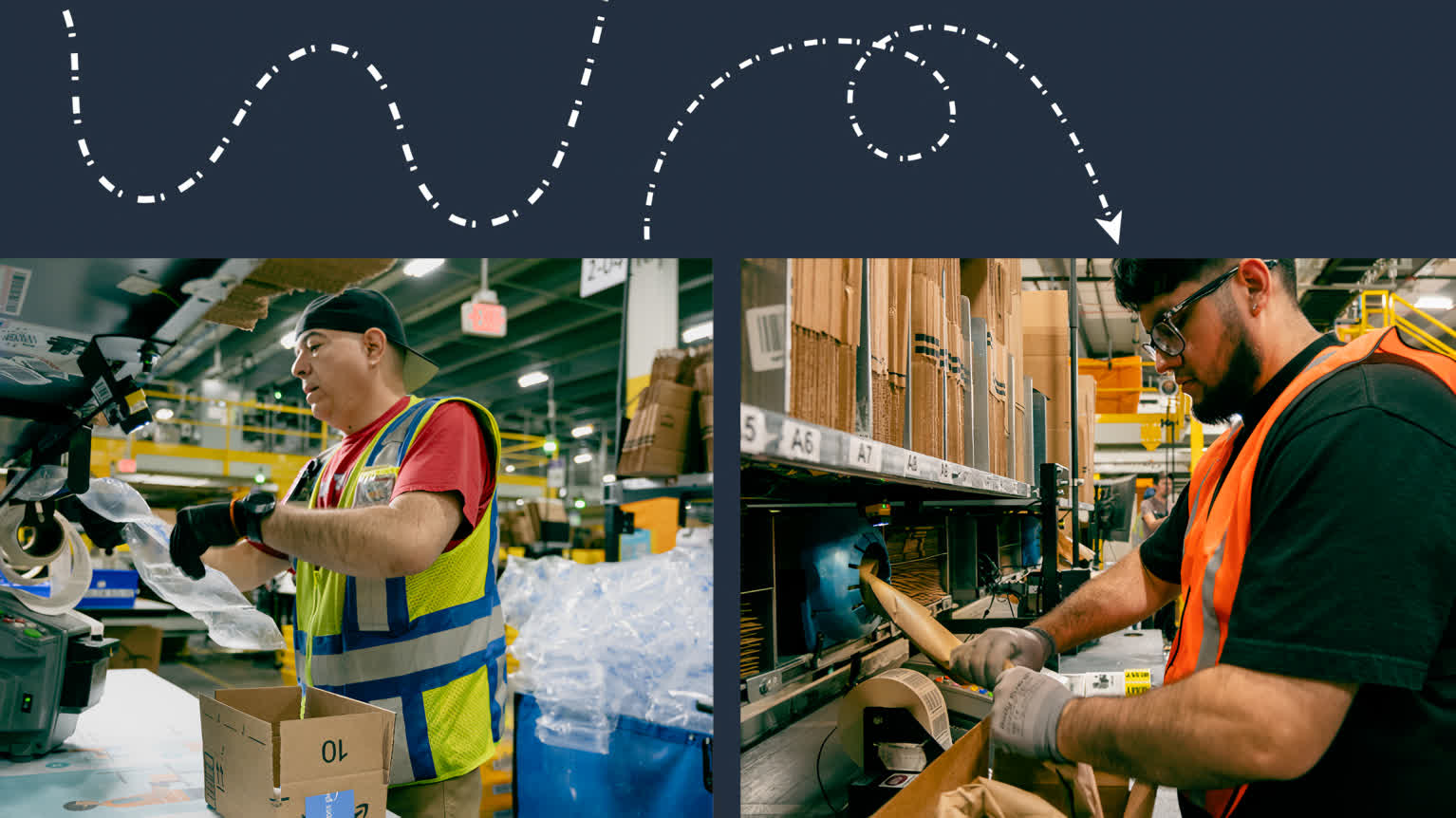In a nutshell: Have you noticed recently that the plastic air pillows Amazon used to stuff into its fragile deliveries have been disappearing, and replaced with paper filler? It's part of the company's environmental push that will see the use of the pillows completely eliminated by the end of the year.
Amazon has announced that it has now reduced the use of plastic air pillows in its packages by 95% in North America as it switches to crumpled paper. The tech giant says it's part of a multi-year effort to remove plastic delivery packaging from fulfillment centers and focus on using recycled materials.
The company says this is its largest plastic packaging reduction effort to date, and will avoid nearly 15 billion plastic air pillows annually. At its next Prime Day, which takes place in July, Amazon plans to use paper filler instead of plastic air pillows for nearly all of its customer deliveries.
One might imagine that the paper offers less protection than the air pillows, but Amazon says that its testing, which included assessment by a third-party engineering lab, shows the paper offers the same, if not better, protection for fragile goods. The paper is also curbside recyclable so customers can recycle it at home, and it's made from 100% recycled content.
Amazon first started moving away from plastic delivery packaging in October 2023, when it announced the first automated US fulfillment center to eliminate plastic packaging in favor of paper solutions.
The move will be welcomed by environmental groups. Oceana found that Amazon generated 599 million pounds of plastic packaging waste in 2020, a 29% increase over the 2019 estimate of 465 million pounds. It was found that the estimated plastic packaging waste from Amazon, in the form of air pillows alone, could circle the Earth more than 600 times.
The group estimated that up to 23.5 million pounds of Amazon's plastic packaging waste entered and polluted the world's waterways and oceans in 2020, equivalent to dumping a delivery van's payload of plastic into the oceans every 67 minutes.
In 2023, Amazon employees staged a walkout over the company's return-to-work policy and their displeasure at its impact on the environment. They stated that Amazon was failing to meet its self-imposed goals of reaching zero emissions by 2040.

